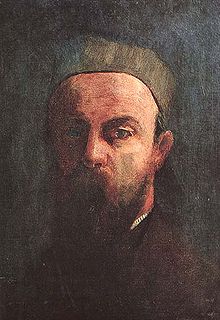A Quote by Seneca the Younger
True wisdom consists in not departing from nature and in molding our conduct according to her laws and model.
Related Quotes
To Amma, all are Her children. In Amma's eyes no defect of Her children is serious. But when She is considered as the guru, it is essential for the growth of the disciples that they conduct themselves according to the tradition. Amma will pardon all the mistakes of Her children, but nature has certain laws. That is what brings punishment for our sins. Children, we should be able to take any sorrow or suffering as conducive for our growth.
.. since it was true that study, even when done properly, can only teach us what wisdom, right conduct and determination consist in, they wanted to put their children directly in touch with actual cases, teaching them not by hearsay but by actively assaying them, vigorously molding and forming them not merely by word and precept but chiefly by deeds and examples, so that wisdom should not be something which the soul knows but the soul's very essence and temperament, not something acquired but a natural property.
If Nature denies eternity to beings, it follows that their destruction is one of her laws. Now, once we observe that destruction is so useful to her that she absolutely cannot dispense with it from this moment onward the idea of annihilation which we attach to death ceases to be real what we call the end of the living animal is no longer a true finish, but a simple transformation, a transmutation of matter. According to these irrefutable principles, death is hence no more than a change of form, an imperceptible passage from one existence into another.
In my understanding of God I start with certain firm beliefs. One is that the laws of nature are not broken. We do not, of course, know all these laws yet, but I believe that such laws exist. I do not, therefore, believe in the literal truth of some miracles which are featured in the Christian Scriptures, such as the Virgin Birth or water into wine. ... God works, I believe, within natural laws, and, according to natural laws, these things happen.
For the religious, passivism [i.e., objects are obedient to the laws of nature] provides a clear role of God as the author of the laws of nature. If the laws of nature are God's commands for an essentially passive world ..., God also has the power to suspend the laws of nature, and so perform miracles.
Thus at every step we are reminded that we by no means rule over nature like a conqueror over a foreign people, like someone standing outside nature - but that we, with flesh, blood and brain, belong to nature, and exist in its midst, and that all our mastery of it consists in the fact that we have the advantage over all other creatures of being able to learn its laws and apply them correctly.








































